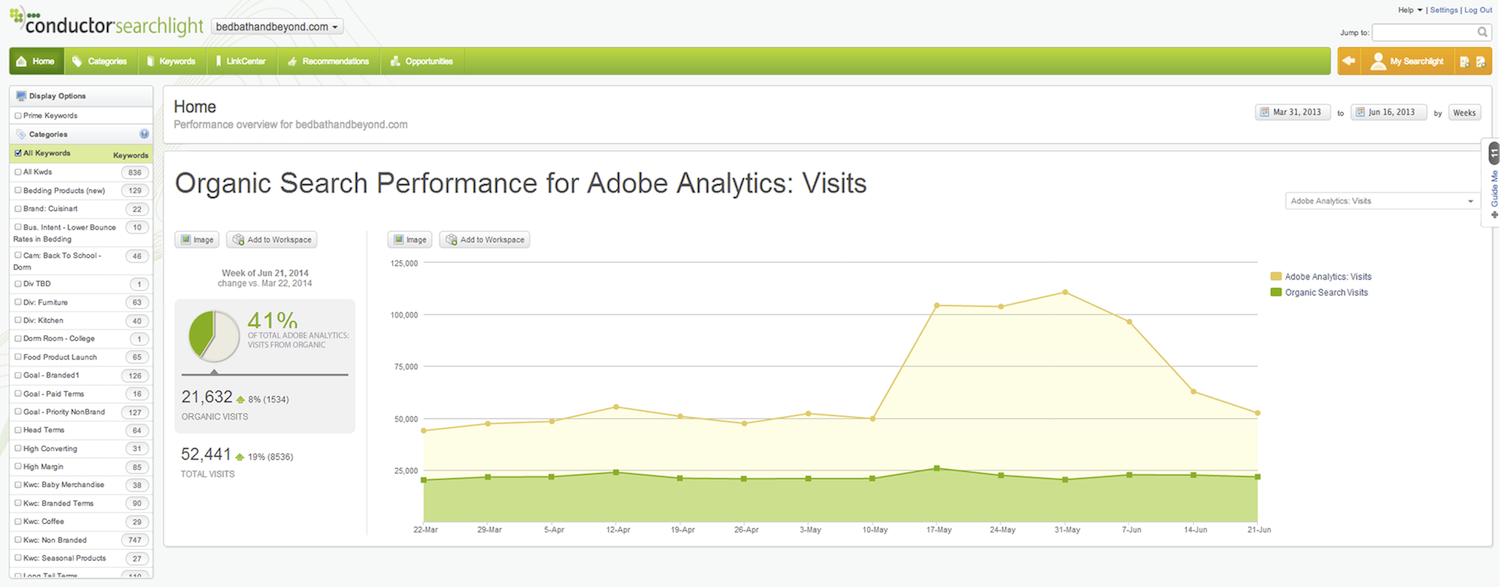Want smarter insights in your inbox? Sign up for our weekly newsletters to get only what matters to enterprise AI, data, and security leaders. Subscribe Now
With Google blocking access to keyword data, how can you tell if your site content is doing its job to deliver organic traffic?
That’s the key challenge that web presence management provider Conductor wants to solve with its new Content Health Score, announced today.
The Score, part of a new section on the company’s platform called Content Insights, integrates Adobe Analytics data with Conductor’s to create a score from 1 to 100 for each page of content.
The higher the score, the greater “the likelihood that pages will be discovered in organic channels,” CEO and founder Seth Besmertnik told VentureBeat. Those channels could include organic searches in Google, or an image from the webpage showing up in Pinterest.
Dark searching, where sites don’t know which keywords drove traffic to them, has now become the norm, because Google has progressively cut off access to keyword data from searches.
The search giant is apparently fine-tuning its algorithms to emphasize content that is more contextually relevant to searches instead of simply matching keywords. This is better for users but can be frustrating for marketers trying to figure out what led all that traffic to a particular page.
So getting the content right is becoming even more important to a site’s marketing plans.
“If your only way [to get traffic or customers] is to buy them through advertising,” Besmertnik said, “it will get harder and harder,” since organic search results get more clicks than search-related ads do. Customers these days are more self-motivated, seeking out reviews and product comparisons and becoming less open to being sold.
“A lot of the buyer journey happens off of your website,” he said. “It’s all about how [your company can] get found in the unpaid web.”
“If you’re Dr. Scholl’s, and if your only marketing content is about insoles, you’re missing out [on customers who are trying to find] content about ‘why my feet hurt’.”
“When you’re looking at your organic data inside Adobe,” he added, “and trying to understand why or why not you’re getting traffic, [Conductor is] crawling the client’s pages and comparing it to all [the potential] keywords.” These inferences about keywords are key ingredients in determining the Content Health Score, and Conductor offers recommendations for improving performance based on its findings.
The key idea for the Content Health Score is to “help companies understand which parts of their sites are performing,” Besmertnik said, including graphics showing how different kinds of content are doing.
Given the large number of analytics tools out there, Besmertnik said that Conductor is the only one “integrated natively” into Adobe Analytics, in addition to importing Adobe’s data into Conductor. “You don’t have to go to any other place.”
Additionally, he said, Conductor can “apply rules against content to create segments based on performance,” which you can’t do in Google Analytics.



